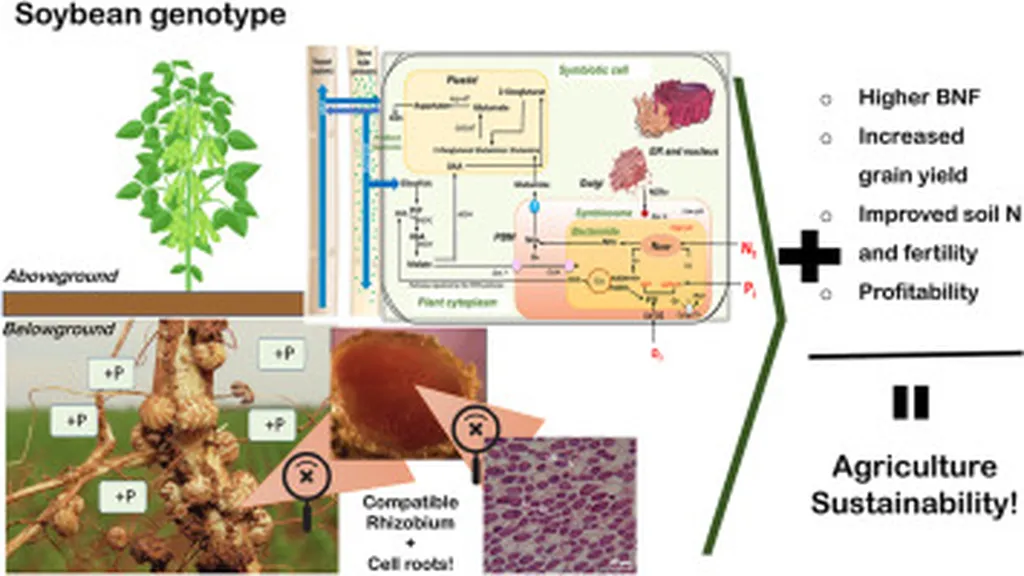In the heart of Cameroon, a groundbreaking study led by Linda Manet from the Centre for Food, Food Security and Nutrition Research Institute of Medical Research and Medicinal Plant Studies (IMPM) in Yaoundé, is revolutionizing the way we think about soybean cultivation. The research, published in Legume Science (translated to English as “Legume Science”), explores the impact of inoculating soybean seeds with two specific strains of Rhizobium bacteria, offering a sustainable and eco-friendly solution to enhance productivity in challenging agricultural conditions.
The study focused on three soybean varieties—TGX 1910 14F, Maksoy 4N, and TGX 1835 10E—and their response to inoculation with Rhizobium strains S1 and S2. The findings are promising, particularly for regions grappling with acidic soils and the high costs of chemical fertilizers. “This study presents a practical solution for enhancing the sustainability of farming systems,” Manet explains, highlighting the potential to contribute to sustainable development goals and address climate change.
One of the most significant findings was the increase in total nitrogen content in the TGX 1910 14F variety after inoculation. The nitrogen content rose from 2.53% to 2.93% with strain S1 and an impressive 3.34% with strain S2. This boost in nitrogen fixation is crucial for plant growth and overall productivity. “The highest number of nodules was recorded in the inoculated seeds, with strain S2 being the most effective across all soybean varieties,” Manet notes, underscoring the potential of these strains to revolutionize soybean farming.
The study also revealed that inoculation led to improvements in various plant growth parameters. For instance, Maksoy 4N inoculated with strain S1 showed increases in plant height, above-ground biomass, and both fresh and dry root weights. This suggests that Rhizobium inoculation could be a game-changer for farmers looking to maximize their yields without resorting to expensive and environmentally harmful chemical fertilizers.
When it comes to yield, the results were equally compelling. Strain S1 proved most efficient for TGX 1910 14F and Maksoy 4N, while strain S2 was most effective for TGX 1835 10E. The highest yield was recorded for TGX 1835 10E inoculated with strain S2, achieving 1.39 tons per hectare. These findings highlight the potential of Rhizobium inoculation to significantly boost soybean productivity, offering a sustainable and cost-effective solution for farmers.
The implications of this research extend beyond the agricultural sector. As the world grapples with the challenges of climate change and the need for sustainable development, innovative solutions like Rhizobium inoculation could play a pivotal role in shaping the future of farming. By enhancing the sustainability of farming systems, this research contributes to the achievement of sustainable development goals and addresses the pressing issue of climate change.
In the words of Linda Manet, “This study presents a practical solution for enhancing the sustainability of farming systems, contributing to the achievement of sustainable development goals, and addressing climate change.” As we look to the future, the potential of Rhizobium inoculation to revolutionize soybean farming and beyond is undeniable. This research not only offers a glimpse into the future of sustainable agriculture but also underscores the importance of continued innovation and research in the field.

